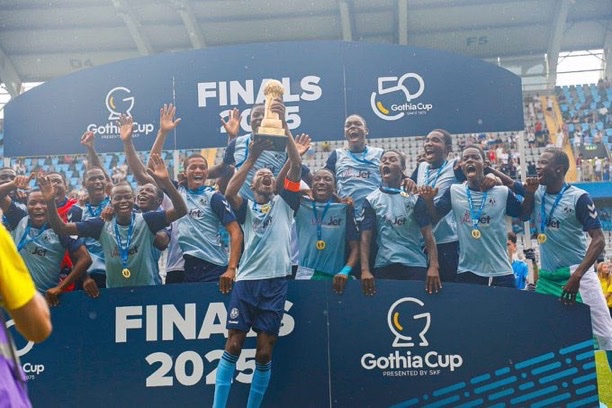
False Alarm or Media Mischief? NRC Dismisses Claims of Vandalism on $1.5 Billion Lagos-Ibadan Railway

The Nigerian Railway Corporation (NRC) has officially denied reports that the $1.5 billion Lagos-Ibadan Standard Gauge Railway project has been vandalised, following the circulation of a viral video that triggered public outcry and concern. The video, which surfaced online over the weekend, showed what appeared to be dismantled railway clips and bolts strewn along the tracks. It quickly gained traction, with many Nigerians expressing fears about the security and sustainability of the heavily-funded infrastructure project touted as a symbol of national progress.
However, the NRC in a swift response has labelled the video as “misleading, sensational, and inaccurate,” firmly rejecting suggestions that the railway line was under attack or had been systematically vandalised. In an official statement released Monday morning, the agency explained that the viral footage misrepresented the actual situation and insisted that the tracks remain fully intact, operational, and secure.
According to the NRC spokesperson, Mahmood Yakubu, “There is no truth to the claims being made in that video. The integrity of the Lagos-Ibadan rail line has not been compromised. What the video shows is not vandalism but a routine maintenance operation where some components are temporarily removed to allow for technical checks and adjustments. Unfortunately, the video was taken out of context, leading to widespread misinformation.”
The statement from the NRC came as a relief to many Nigerians, particularly commuters and stakeholders in the transport and logistics sector who rely on the modern rail line for seamless movement between Lagos, Ogun, and Oyo states. Completed in 2021, the Lagos-Ibadan railway has been one of the federal government’s flagship infrastructure projects under the Muhammadu Buhari administration, with funding secured through a loan agreement with the Export-Import Bank of China. The railway project was commissioned to boost connectivity, ease congestion on the roads, and modernize Nigeria’s aging transport system.
As news of the alleged vandalism spread across X (formerly Twitter), Facebook, and WhatsApp, alarm bells rang across the nation. Social commentators, opposition voices, and concerned citizens questioned the government’s capacity to protect national assets and blamed insecurity, poverty, and corruption for the supposed sabotage. The video reignited broader concerns over the security of public infrastructure, especially after past incidents of railway vandalism reported in parts of Kaduna, Abuja, and Warri.
But the NRC insists the Lagos-Ibadan line is being patrolled regularly and remains under round-the-clock surveillance. “We work closely with the Nigeria Police Railway Command, the Civil Defence, and local security networks to ensure that the tracks and train stations are protected. Any activity observed along the corridor is documented, reviewed, and acted upon immediately,” the spokesperson added.
Despite these reassurances, public trust appears shaken. Critics argue that the government has not done enough to counter a growing perception that national projects are not safe from theft or mismanagement. The opposition Peoples Democratic Party (PDP), through its National Publicity Secretary Debo Ologunagba, called for an independent investigation into the video to ascertain the facts beyond NRC’s statement. “While we appreciate the NRC’s clarification, the Nigerian people deserve transparency. There should be an independent technical review to clear all doubts,” he said in a televised interview.
Security analysts and transport experts have also weighed in. Dr. Adebayo Ogunjimi, a transportation policy expert based in Ibadan, warned that while the NRC might be correct in its dismissal, public perception is a powerful force. “Once people see video evidence, whether accurate or not, it becomes difficult to unsee it. The NRC must improve its communication strategy. It must show not just tell. Release live footage from surveillance cameras, conduct open inspections, and engage independent monitors.”
Interestingly, the individual who posted the viral video has remained anonymous, further complicating the story. Some observers believe the video may have been intentionally released to stir political tension or distract from other pressing national issues. With Nigeria currently grappling with economic hardship, subsidy debates, and rising inflation, conspiracy theories have begun to swirl.
Still, others have taken the development as an opportunity to call for better civic education and responsible social media use. “Nigerians must learn to fact-check before sharing. Not everything that looks like a crisis is one,” said digital rights advocate Tomi Obafemi. She added that platforms like X and Facebook need stronger misinformation filters to prevent the spread of harmful and misleading content.
Meanwhile, operations on the Lagos-Ibadan rail corridor continued without interruption on Monday, with passengers at the Mobolaji Johnson Station in Ebute Metta expressing mixed reactions. Some commuters said they never believed the video in the first place, while others admitted they were worried but were now reassured by NRC’s clarification.
“I’ve been taking the train from Lagos to Abeokuta for months now, and the experience has been smooth,” said Samson Ibitoye, a regular passenger. “When I saw that video, I was shocked. But today everything looks normal. The train came on time, the staff were courteous, and the tracks look fine.”
Another passenger, Mrs. Adebimpe Arogundade, said the situation highlights the need for better public awareness. “Government needs to educate us more. When things like this happen, and they keep quiet for too long, we start panicking. Thankfully they responded quickly this time.”
As the dust settles on this latest saga, the NRC has vowed to pursue all means necessary to identify the source of the misleading video and prevent similar incidents from recurring. The agency also reiterated its commitment to maintaining the safety and reliability of the railway system, calling on Nigerians to support public infrastructure and report suspicious activities rather than spread unverified claims.
In a time when fake news and digital sensationalism can spark panic in minutes, the incident underscores the importance of media literacy, institutional transparency, and proactive communication. Whether the video was a simple misunderstanding, an act of mischief, or a calculated move to discredit public infrastructure, it has succeeded in raising fundamental questions about trust, accountability, and the fragile intersection between progress and perception in Nigeria.


